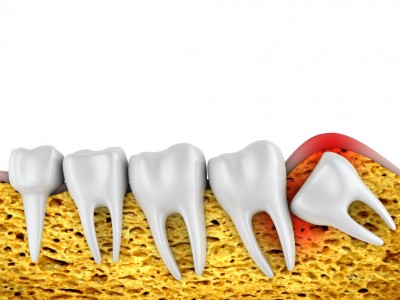Understanding Why People Need Wisdom Teeth Removed
 What Are Wisdom Teeth?
What Are Wisdom Teeth?
Wisdom teeth represent the eighth tooth of the medial (central) line in the human jaw. They develop relatively late. Their mineralization ends in 13/14 years, and their emergence is from 18 to 25 years.
They have that name since the eighteenth century. According to research, the human brain got its full maturity and development around the age of 25, at the same time when wisdom teeth have already appear.
The number of roots that the wisdom tooth possesses can be varied. Usually, these formations are curved. Wisdom teeth are borderline and do not participate in contact with food or the process of chewing and digestion. But they play a significant role when it comes to preserving the jawbone and oral health.
A small problem, which is becoming more common, is the powerful and persistent pain that spreads to the ear during germination. Often these teeth have anomalies in their positions, they press on other roots, and it is sometimes necessary to remove them.
The Problems Causing Wisdom Teeth To Be Removed
- Unexplained or impacted wisdom teeth – depending on their position, can cause serious trouble. An unexplained wisdom tooth can be completely invisible, and people in those situations are not aware that they have a problem. There are various problems – a wisdom tooth that has not erupted, half-erupted wisdom teeth, wisdom teeth that completely dislocate, wisdom teeth that bother for orthodontic reasons such as ankle pain, and more. When there is an inflammatory process or a cyst that threatens other teeth or when the impacted wisdom tooth is a problem, dentists start surgical removal.
- Wisdom tooth decay – is one of the problems that can be easily solved by itself when it notices in time. Otherwise, it happens that caries spread circularly from tooth to tooth, from the wisdom tooth to other molars. That can certainly be a problem for oral health.
- Resorption of the root of a neighboring tooth – is caused because the erupting tooth undermines another tooth, so operations are frequent in this case.
- Repression of other teeth – one of the reasons why early wisdom tooth removal is advised is that they can start pushing other teeth and causing complications in the front of the jaw.
- Pericoronitis – is an infection that occurs when food is retained on the soft tissue and multiplies millions of new bacteria. These are just the causes of diseases that happen in the sinuses, surrounding tissues, and glands.
- Possibility of injury/fracture of the lower jaw – the risk of lower jaw fracture occurs mainly in athletes who engage in contact sports.
What Is Happening After Having Wisdom Teeth Removed?
Two hours after the intervention, when the effect of the local anesthetic has passed, the following may occur:
- Discomfort and pain in the jaw, where a prescribed painkiller recommended
- Swelling – on the second day after surgery. It is recommended that cold compresses be applied on the outside, for the next two days, fifteen minutes, and then take a break of half an hour, and so on alternately.
- A small amount of blood in the saliva can remain for two or three days.
- The problem when opening the mouth and chewing, which decreases as the swelling falls.
Food should avoid during anesthesia, and not eat or drink warm for the first 24 hours.
These are temporary symptoms that disappear after a few weeks. If the pain does not stop, contact your dentist to prescribe therapy.
Wisdom tooth removal is often a necessary part of maintaining oral health.
The best option is to practice a regular dental check-up and timely detect and eliminate possible problems with expert advice.
For more information regarding your dental health, please give Dr. Apsey of Smile Brightly Dental a call today! We are located in Warren, MI and we can be reached at 586-573-7700!
